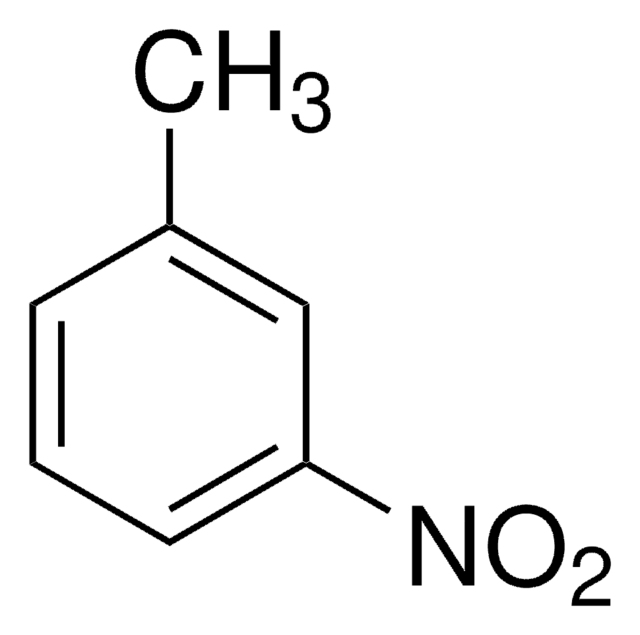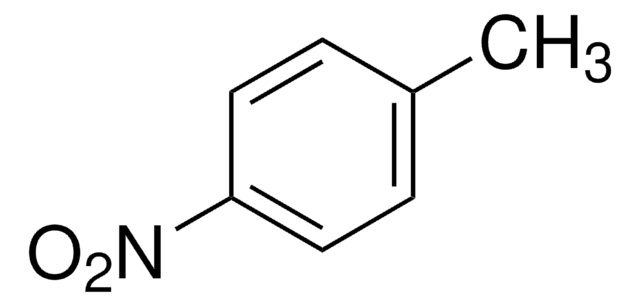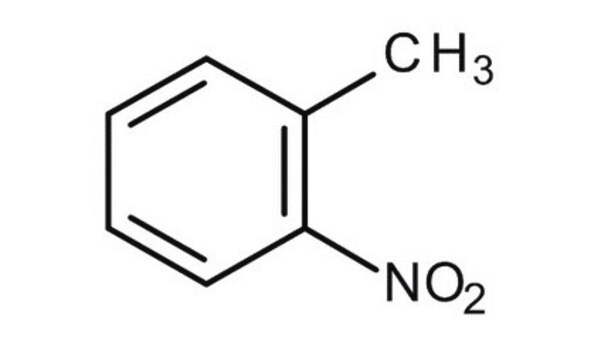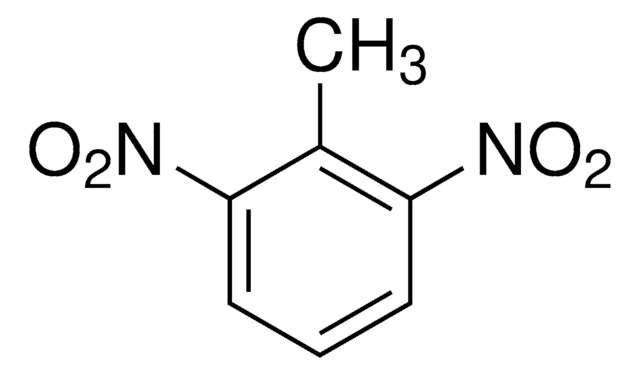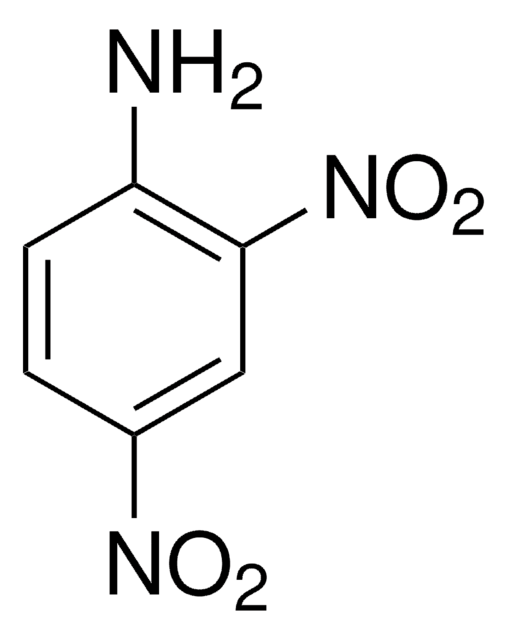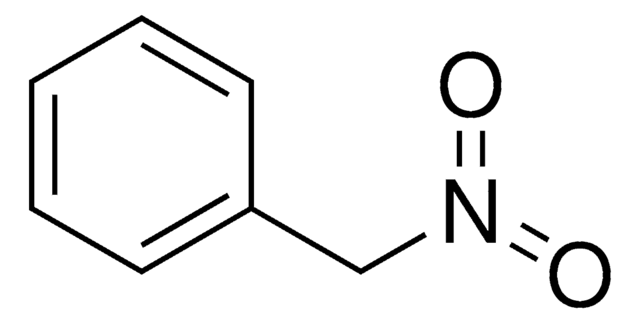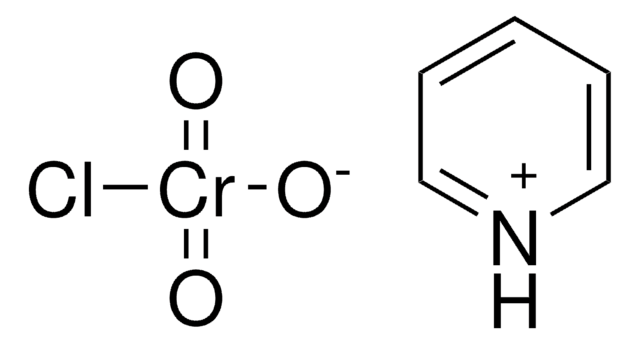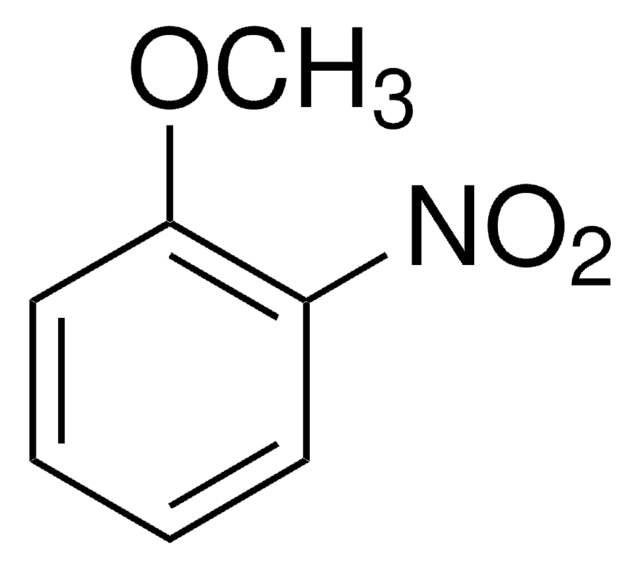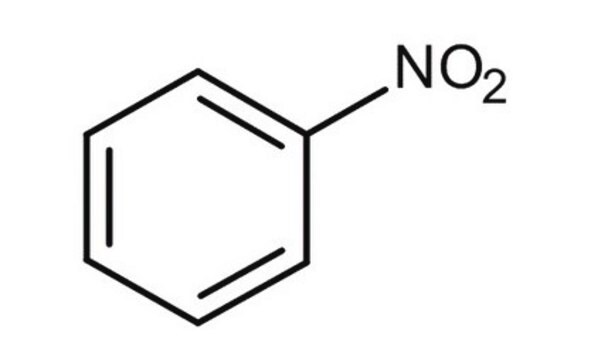438804
2-Nitrotoluene
≥99%
Synonym(s):
1-Methyl-2-nitrobenzene
About This Item
Recommended Products
Quality Level
Assay
≥99%
form
liquid
refractive index
n20/D 1.546 (lit.)
bp
225 °C (lit.)
mp
−4-−3 °C (lit.)
density
1.163 g/mL at 25 °C (lit.)
functional group
nitro
SMILES string
Cc1ccccc1[N+]([O-])=O
InChI
1S/C7H7NO2/c1-6-4-2-3-5-7(6)8(9)10/h2-5H,1H3
InChI key
PLAZTCDQAHEYBI-UHFFFAOYSA-N
Looking for similar products? Visit Product Comparison Guide
General description
Application
Signal Word
Danger
Hazard Statements
Precautionary Statements
Hazard Classifications
Acute Tox. 4 Oral - Aquatic Chronic 2 - Carc. 1B - Muta. 1B - Repr. 2
Storage Class Code
6.1A - Combustible acute toxic Cat. 1 and 2 / very toxic hazardous materials
WGK
WGK 3
Flash Point(F)
203.0 °F - closed cup
Flash Point(C)
95 °C - closed cup
Personal Protective Equipment
Regulatory Listings
Regulatory Listings are mainly provided for chemical products. Only limited information can be provided here for non-chemical products. No entry means none of the components are listed. It is the user’s obligation to ensure the safe and legal use of the product.
PRTR
Class II Designated Chemical Substances
FSL
Group 4: Flammable liquids
Type 3 petroleums
Hazardous rank III
Water insoluble liquid
ISHL Indicated Name
Substances Subject to be Indicated Names
ISHL Notified Names
Substances Subject to be Notified Names
JAN Code
438804-BULK:
438804-1L:
438804-VAR:
438804-100ML:4548173941011
438804-4L:
438804-5ML:4548173941028
Choose from one of the most recent versions:
Already Own This Product?
Find documentation for the products that you have recently purchased in the Document Library.
Customers Also Viewed
Our team of scientists has experience in all areas of research including Life Science, Material Science, Chemical Synthesis, Chromatography, Analytical and many others.
Contact Technical Service